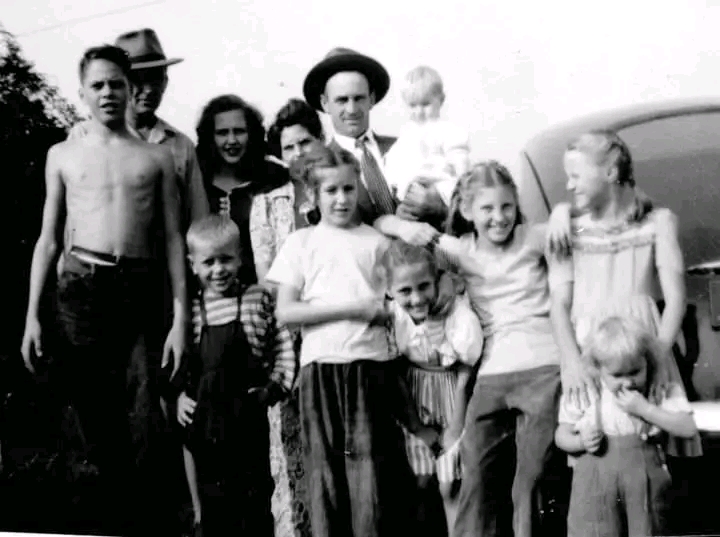
From Coal Dust to Capitol Steps: The Legacy of Jennie (Lininger) Shaffer.
In a faded black-and-white photograph, a little girl stands front and center, proud in her best clothes—a white T-shirt and pants made from burlap sacks. It is the early 1950s in West Virginia, and her father, a coal miner with a third-grade education, has worked tirelessly to provide for his family. That little girl, Jennie (Lininger) Shaffer, would one day trade those burlap sacks for a teacher’s suit, leading thousands in a fight for justice on the steps of the West Virginia State Capitol.
By 1990, Jennie Shaffer was no longer just the coal miner’s daughter in her city clothes. She was Vice President of the West Virginia Education Association (WVEA), standing before 10,000 striking teachers, her voice ringing out in song. The anthem was Pete Seeger’s If I Had a Hammer—a song of justice, of ringing bells, of voices singing together for what is right. In that moment, she was not just leading a strike; she was carrying forward the dreams of those who had come before her, the laborers, the miners, the men and women who had fought to carve out a better life from the Appalachian hills.
Jennie’s journey from a coal camp to the Capitol steps was not an easy one. She grew up knowing the weight of poverty, understanding the sacrifices her father made every time he descended into the mines. Education was her way forward, her way to honor the toil and sacrifice that had shaped her childhood. She became a teacher, not just to instruct but to uplift, to ensure that no child was bound by the limits of their circumstances.

But teaching was never just about the classroom for Jennie. It was about dignity, about ensuring that those who shaped young minds were treated with the respect they deserved. When West Virginia’s teachers went on strike in 1990—demanding fair pay, better benefits, and recognition—she stood at the forefront, a steady, determined presence. That moment on the Capitol steps was the culmination of years of advocacy, a testament to the power of collective action.
Jennie’s story is not just one of personal triumph; it is a reminder of what is possible when working-class children are given a chance. She took the lessons of her upbringing—the resilience, the determination, the understanding that no one wins alone—and turned them into a legacy of leadership.
Her father, the coal miner, may not have had the opportunity to stand where she stood, to lead as she led, but through her, his hammer rang out. And with it, the voices of thousands who believed in a better future.
Leave a Reply